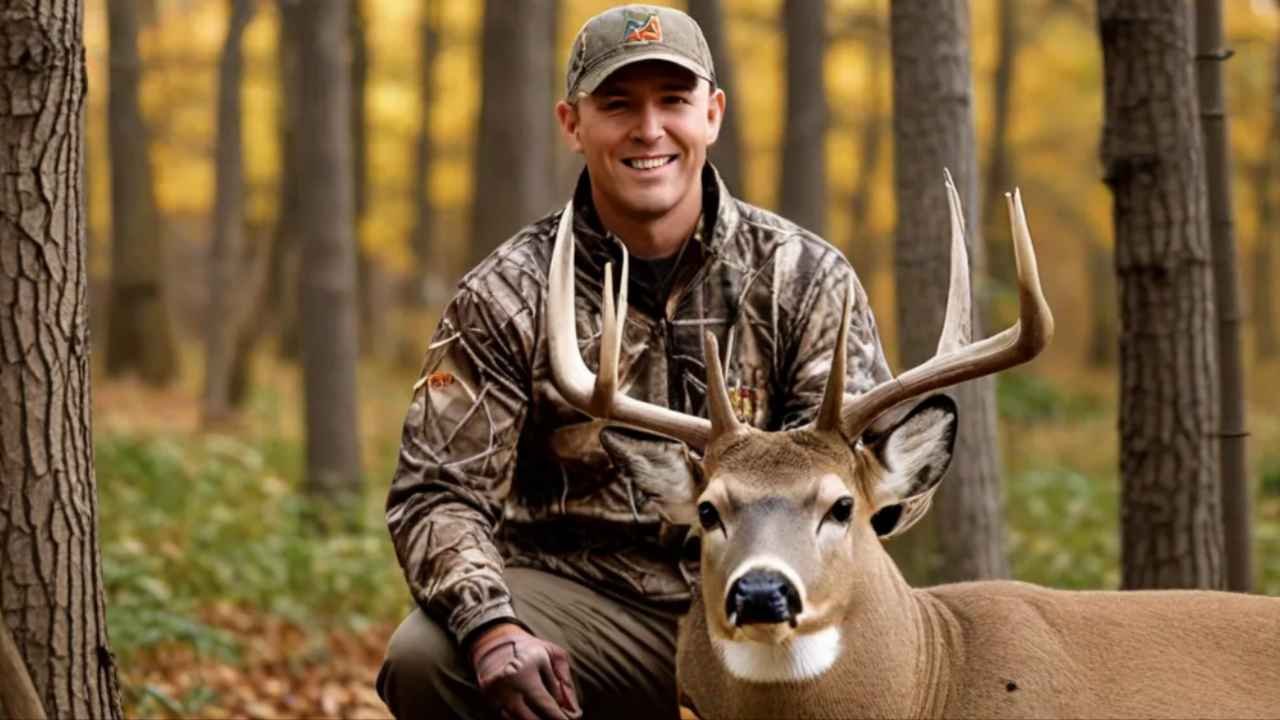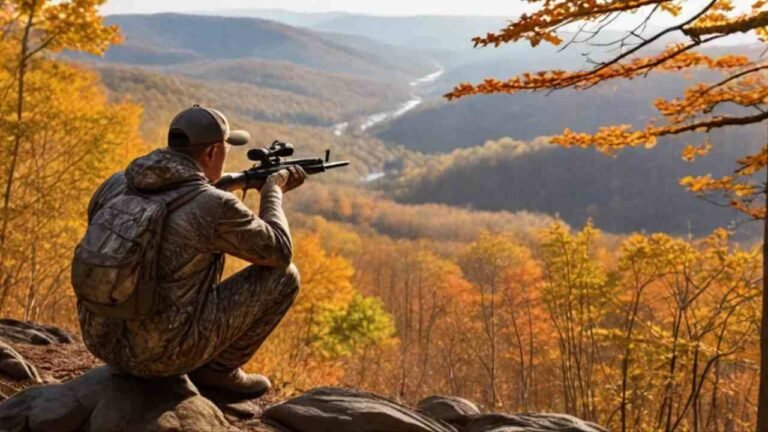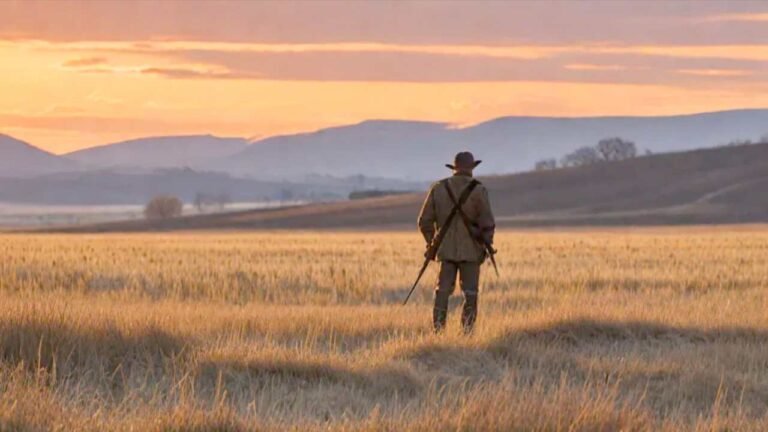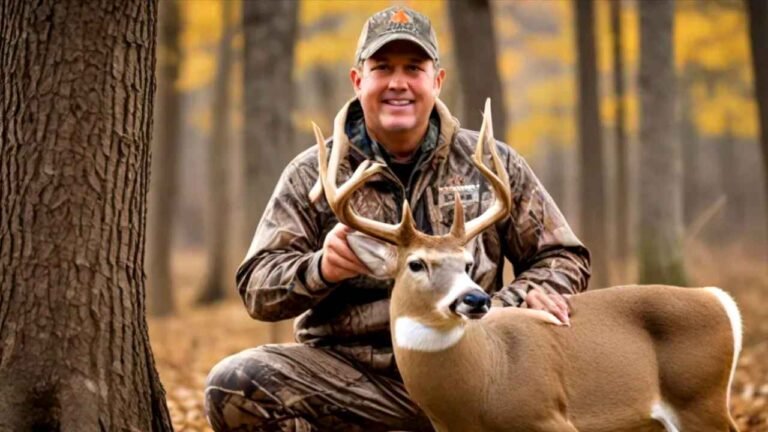Indiana 2025-2026 Hunting Seasons by Species – What to Know Before You Go
Welcome to your comprehensive guide to wildlife pursuits in the Hoosier State! Whether you’re a seasoned outdoorsperson or just starting your adventure, this resource covers everything you need for a successful expedition in Indiana. From white-tailed deer to waterfowl, we’ve compiled the official dates, tag information, and zone details to help you plan your outings throughout 2025-2026. Let’s explore what Indiana’s woods, fields, and wetlands have to offer this year!
📅 Indiana Game Seasons at a Glance
Before diving into specifics, here’s a quick overview of key wildlife pursuit opportunities across the state:
| Species | Season Opens | Season Closes | Method | Bag Limit |
|---|---|---|---|---|
| Deer (Youth) | Sept. 27, 2025 | Sept. 28, 2025 | All legal methods | Per county limits |
| Deer (Archery) | Oct. 1, 2025 | Jan. 4, 2026 | Bow/Crossbow | 6 antlerless + 1 antlered |
| Wild Turkey (Spring) | April 22, 2026 | May 10, 2026 | Shotgun/Archery | 1 bearded/male |
| Squirrel | Aug. 15, 2025 | Jan. 31, 2026 | Various | 5 per day |
| Mourning Dove | Sept. 1, 2025 | Oct. 19, 2025 | Shotgun | 15 per day |
| Waterfowl | Oct. 18, 2025 | Feb. 15, 2026 | Varies by zone | Species-specific |
🦌 Big Game: Archery & Rifle Seasons
White-tailed Deer
Indiana’s premier big game species offers multiple opportunities throughout the fall and winter months:
Season Dates:
- Reduction Zone: Sept. 15, 2025 – Jan. 31, 2026
- Youth Weekend: Sept. 27-28, 2025
- Archery: Oct. 1, 2025 – Jan. 4, 2026
- Firearms: Nov. 15-30, 2025
- Muzzleloader: Dec. 6-21, 2025
Bag Limits & Tags 🎟️:
- Statewide: 6 antlerless + 1 antlered deer maximum
- County-specific antlerless limits apply (check deer.IN.gov)
- Reduction zones allow up to 10 deer in designated areas
- Multi-season antlerless licenses available for extended opportunities
Legal Methods:
- Archery: 35+ lb draw weight bows, crossbows (125+ lb)
- Firearms: Centerfire rifles .219″ or larger, shotguns with slugs
- Muzzleloader: .40 caliber minimum for rifles
- Hunter orange required during firearm seasons
Note: Indiana does not currently have bear or elk seasons.
🦃 Turkey Season: Spring, Fall & Youth
Spring Turkey
Dates: April 22 – May 10, 2026 Youth Spring: April 18-19, 2026
Spring gobbler season remains one of Indiana’s most popular pursuits. Hunters can take one bearded or male turkey during the combined youth and regular spring seasons.
Fall Turkey
Archery: Oct. 1-26, 2025 & Dec. 6, 2025 – Jan. 4, 2026 Firearms: Oct. 15-26, 2025 (select counties only)
Fall turkey offers both-sex opportunities with a bag limit of one bird per hunter. Separate licenses required for spring and fall seasons.
Required Licenses: Turkey license + Gamebird Habitat Stamp
🦊 Furbearers
Indiana’s furbearer seasons provide excellent opportunities for both hunters and trappers:
Hunting Seasons:
- Red & Gray Fox: Oct. 15, 2025 – Feb. 28, 2026
- Coyote & Striped Skunk: Oct. 15, 2025 – March 15, 2026
- Raccoon & Opossum: Nov. 8, 2025 – Jan. 31, 2026
Trapping Seasons:
- Beaver: Nov. 15, 2025 – March 15, 2026
- Mink, Muskrat & Weasel: Nov. 15, 2025 – Jan. 31, 2026
- River Otter: Nov. 15, 2025 – March 15, 2026 (2 per person limit)
- Bobcat: Nov. 8, 2025 – Jan. 31, 2026 (40 counties, 1 per person)
Most furbearer species have no bag limits, making them excellent for predator control and pelt harvesting.
🐦 Upland Birds
Ring-necked Pheasant (cock birds only): Nov. 1 – Dec. 15, 2025 (2 per day) Northern Bobwhite Quail:
- North of I-74: Nov. 1 – Dec. 15, 2025 (4 per day)
- South of I-74: Nov. 1, 2025 – Jan. 10, 2026 (8 per day)
Crow: July 1 – Aug. 15, 2025 & Dec. 13, 2025 – March 1, 2026 (no limit)
Note: Ruffed grouse season remains suspended.
🐿️ Upland Animals
Gray & Fox Squirrel: Aug. 15, 2025 – Jan. 31, 2026 (5 per day) Eastern Cottontail Rabbit: Nov. 1, 2025 – Feb. 28, 2026 (5 per day)
These traditional small game species offer excellent opportunities for youth hunters and those seeking table fare.
🕊️ Other Small Game
| Species | Season | Bag Limit |
|---|---|---|
| Mourning Dove | Sept. 1-Oct. 19, Nov. 1-30, Dec. 20-30, 2025 | 15 per day |
| Woodcock | Oct. 15 – Nov. 28, 2025 | 3 per day |
| Snipe | Sept. 1 – Dec. 16, 2025 | 8 per day |
| Sora Rail | Sept. 1 – Nov. 9, 2025 | 25 per day |
| Green Frog/Bullfrog | June 15, 2025 – April 30, 2026 | 25 per day |
🦅 Migratory Birds
Early Teal: Sept. 6-14, 2025 (6 per day) Mourning Dove: Three split seasons with 15 birds daily Woodcock: Oct. 15 – Nov. 28, 2025 (3 per day) Snipe: Sept. 1 – Dec. 16, 2025 (8 per day)
All migratory bird hunters must possess a valid Migratory Bird Hunting and Conservation Stamp and register with the Harvest Information Program (HIP).
🦆 Ducks, Scaup, Mergansers, Geese
Indiana’s waterfowl seasons are divided into three zones with split seasons:
North Zone:
- Ducks/Coots/Mergansers: Oct. 18 – Dec. 7, 2025; Dec. 20-28, 2025
- Canada Geese: Sept. 1-10, Oct. 18-26, Nov. 22, 2025 – Feb. 15, 2026
Central Zone:
- Ducks/Coots/Mergansers: Nov. 1-9, 2025; Nov. 22, 2025 – Jan. 11, 2026
- Canada Geese: Sept. 1-10, Nov. 1-9, Nov. 22, 2025 – Feb. 15, 2026
South Zone:
- Ducks/Coots/Mergansers: Nov. 8-9, 2025; Nov. 29, 2025 – Jan. 25, 2026
- Canada Geese: Sept. 1-14, Nov. 8-12, Nov. 22, 2025 – Feb. 15, 2026
Bag Limits:
- Ducks: 6 per day (with species-specific sub-limits)
- Mergansers: 5 per day (max 2 hooded)
- Coots: 15 per day
🦢 Other Waterfowl
Light Geese (snow, blue, Ross): 20 per day with no possession limit White-fronted Geese: Nov. 22, 2025 – Feb. 15, 2026 (2 per day) Brant: Combined with Canada goose limits
Youth & Veteran Special Days:
- North Zone: Oct. 11-12, 2025
- Central Zone: Oct. 25-26, 2025
- South Zone: Nov. 1-2, 2025
🐢 Additional Game Seasons
Game Turtles (snapping, smooth & spiny softshell): July 1, 2025 – March 31, 2026
- Minimum 12-inch carapace length
- 4 per day aggregate limit
Green Frog & Bullfrog: June 15, 2025 – April 30, 2026 (Daily limit: 25)
Special Notes 📝:
- Non-toxic shot required for waterfowl and dove fields
- Hunter orange requirements vary by season and species
- All hunters born after Dec. 31, 1986 must complete hunter education
- Licenses and stamps available at hunting.IN.gov
🗺️ Indiana Hunting Zones Map
For detailed information about Indiana’s wildlife management zones, including county-specific regulations and public land opportunities, visit the official Indiana DNR Wildlife Map.
🎟️ License Information
While specific prices for 2025-2026 weren’t included in the document, Indiana typically offers:
- Resident Licenses: Annual hunting, combination, and lifetime options
- Non-Resident Licenses: Various options for out-of-state visitors
- Youth Licenses: Discounted rates for young enthusiasts
- Special Tags: For deer, turkey, and other regulated species
- Trapping Licenses: Required for all trapping activities
Remember that separate licenses may be required for different activities (such as spring and fall turkey seasons).
❓ Frequently Asked Questions
Do I need separate tags for different deer seasons?
Yes, you’ll need the appropriate license for each method (archery, firearms, etc.). Check the current Hunting & Trapping Guide for specific requirements.
Where can I find public land to hunt in Indiana?
Indiana offers numerous public lands through Fish & Wildlife Areas, State Forests, and other programs. Visit on.IN.gov/dfwproperties for a complete list.
Is night hunting allowed in Indiana?
Night hunting is restricted to certain species like raccoon and opossum during their designated seasons. Most game animals may only be pursued during daylight hours.
How do I know which zone I’m in for waterfowl?
Indiana is divided into North, Central, and South zones for waterfowl. Check the official DNR website for a detailed zone map.
Are conservation permits required in addition to hunting licenses?
For migratory birds, you’ll need both a hunting license and appropriate stamps/permits like the HIP registration and Federal Duck Stamp for waterfowl.
🔗 Related Resources
🌲 Final Thoughts
As you prepare for your Indiana outdoor adventures in 2025-2026, remember that regulations can change and special circumstances may apply to specific regions. Always verify current rules before heading out, respect landowner rights, and practice ethical techniques.
The rich diversity of wildlife in the Hoosier State provides opportunities year-round for enthusiasts of all experience levels. Whether you’re pursuing deer in the autumn woods, calling turkeys in spring, or setting traps for furbearers in winter, proper planning ensures both a rewarding experience and sustainable wildlife management.
Before your expedition, make sure to purchase appropriate licenses, check zone-specific regulations, and review any changes from previous years. Good luck and safe adventures!
Sources:
Happy hunting! 🎯







